In this article, we delve into the journey of ToyGaroo, an innovative toy rental service that caught the attention of viewers and investors on the popular reality show, Shark Tank. Lauded as the “Netflix for toys”, ToyGaroo promised a solution for parents seeking to provide their children with a variety of toys without breaking the bank or cluttering their homes.
Despite securing a deal with Sharks Mark Cuban and Kevin O’Leary, ToyGaroo’s story took unexpected turns post-Shark Tank. Read on to discover what led to its rise, the challenges it faced, and the factors that culminated in its eventual closure.
What Is ToyGaroo?
Pros:
- Time-Saving: ToyGaroo provided parents with a convenient way to keep their children entertained without the need for constant shopping trips;
- Cost-Effective: The service was designed to be easy on the pocket, offering toys worth $ 200 in a play box that cost anywhere between $ 50 to $ 90;
- Wide Selection of Toys: ToyGaroo boasted a wide selection of toys, keeping the entertainment options fresh and engaging;
- No Shipping Cost: The company absorbed the shipping costs, making the service more affordable for customers;
- Reduced Clutter: The renting model allowed parents to return toys once their children tired of them, reducing clutter at home;
- New Toys Every Month: The subscription model meant kids got new toys to play with every month, keeping their interest piqued;
- Cons:
- Quality and Cleanliness Issues: Customers reported issues with the cleanliness and quality of the toys, which can be a significant concern given the target audience – children;
- Financial Unsustainability: The costs of sanitizing, packaging, and shipping the toys were higher than anticipated, making the business model financially unsustainable in the long run;
- Sourcing Problems: It proved challenging to source toys affordably. The company had hoped for their investors to help with contacts at major toy manufacturers like Mattel, but this didn’t materialize;
- Inventory Maintenance: Keeping a varied inventory to cater to different age groups and interests was a logistical challenge;
Who May Benefit From Using ToyGaroo?
ToyGaroo, often referred to as the “Netflix for toys”, was a toy rental service that could benefit various groups of people. However, ToyGaroo has ceased operations since 2012.
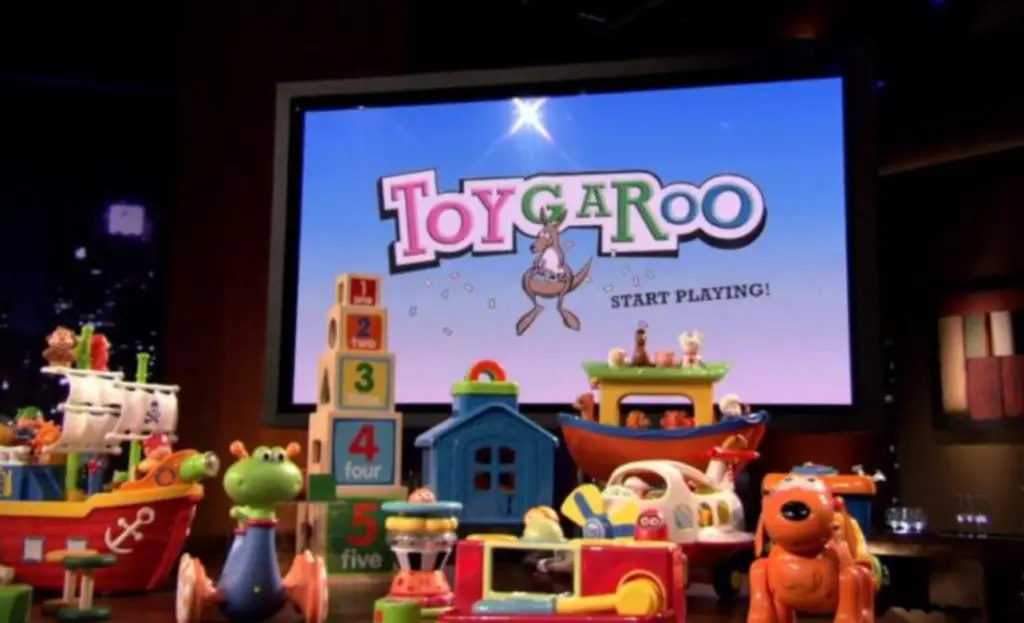
Here’s who might have found it useful:
- Parents on a budget: Toys can be expensive, and children often lose interest in them after a short time. Renting toys through a service like ToyGaroo could have allowed parents to save money while still providing their children with a variety of toys;
- Environmentally conscious consumers: By renting toys instead of buying new ones, consumers would have been able to reduce waste and contribute to a more sustainable economy;
- Families living in small spaces: For families without much storage space, renting toys could have been a great alternative to buying and having to store them;
- Parents of children with rapidly changing interests: Some children quickly move on from one interest to another. A toy rental service would have allowed these children to explore different types of toys without the commitment of purchase [2];
About the Founders Of ToyGaroo
Nikki Pope made her debut on Shark Tank during Season 2, presenting a cost-saving proposition designed to assist parents in keeping their children entertained.
While she affectionately refers to her nieces and nephews as “playtime pros”, there is a common challenge: children tend to quickly lose interest in their toys. This observation prompted Nikki Pope and her husband to embark on the journey of creating Toygaroo.
Toygaroo stands as an affordable and practical solution for parents seeking to maintain a tidier home environment while ensuring their children are perpetually engaged with a fresh array of toys.
Interestingly, Nikki and her husband do not yet have children of their own, but they aspire to start a family. The success of Toygaroo, propelled by the support of the Sharks, holds the promise of providing them with the financial security needed to embark on their own journey of parenthood.
Nikki Pope envisions Toygaroo as a staple in the lives of every family with children who cherish playtime [4]. She passionately hopes that the Sharks will help turn this vision into a reality, not only for her but for countless families seeking a more convenient and sustainable way to keep their little ones entertained.
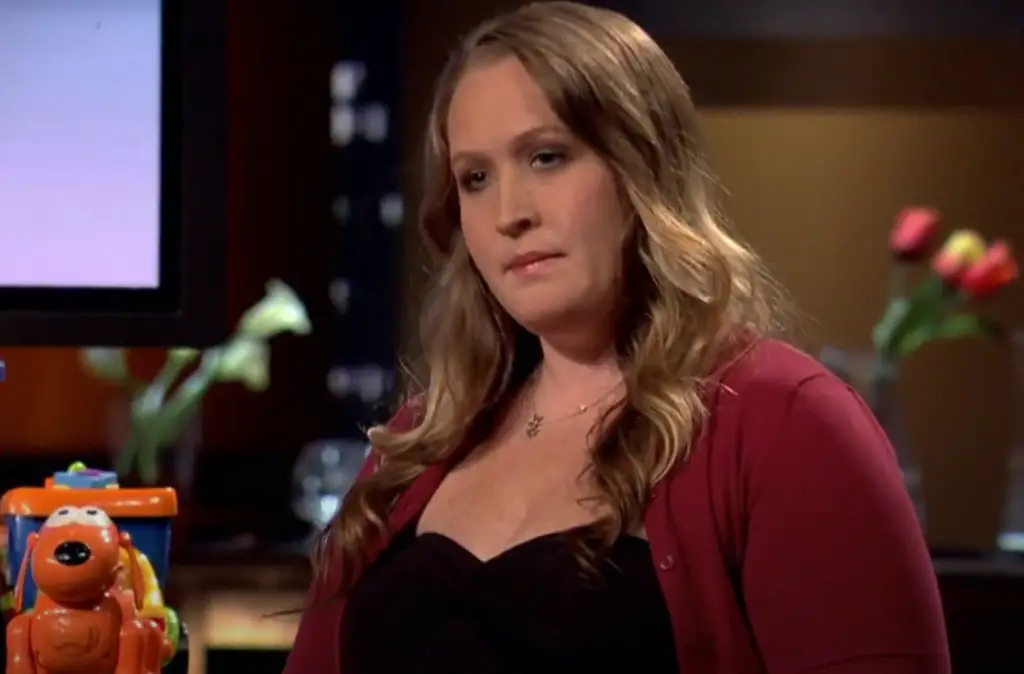
The Pitch Of ToyGaroo At Shark Tank
Nikki Pope strides confidently to the forefront, facing the formidable panel of Sharks.
With a poised demeanor, Nikki Pope initiates her pitch by introducing herself to the Sharks, unveiling her brainchild, Toygaroo, and disclosing her quest for a $ 100,000 investment in exchange for a ten percent equity stake in her burgeoning enterprise.
She goes on to assert that Toygaroo addresses a ubiquitous conundrum faced by countless families daily. Drawing from her own experiences growing up with eleven siblings and now being an aunt to thirteen lively nieces and nephews, all under the age of eight, Nikki underscores the issue at hand.
In Nikki’s own words, Toygaroo is essentially the “Netflix for toys.” Clients simply visit the Toygaroo website, choose a plan tailored to their needs, and curate their toy wish lists. Nikki Pope then orchestrates the delivery of these coveted toys straight to their doorstep. Once the toys have fulfilled their purpose, parents can stow them back in the provided box, affix the Toygaroo return label, and dispatch them back to Toygaroo.
Barbara Corcoran, keen on discerning the toy’s quality, inquires whether Nikki Pope can vouch for their caliber. In response, Nikki affirms the quality of the toys and proceeds to showcase several of them to Barbara and the other Sharks.
Mark Cuban, always analytical, seeks to ascertain the extent of Toygaroo’s toy inventory. Nikki confidently asserts that they boast an impressive catalog of over three hundred distinct toys.
Addressing the pragmatic concerns of cleanliness, Daymond John raises the issue of toy hygiene, particularly considering the less-than-pristine nature of children. Nikki reassures the Sharks that Toygaroo prioritizes cleanliness, with toys undergoing thorough sanitization upon their return. After this process, they are meticulously shrink-wrapped and primed for dispatch to the next eager family.
Kevin O’Leary, the pragmatist, inquires about the shrink-wrapping protocol, to which Nikki responds that every toy undergoes this process without exception.
When Kevin O’Leary seeks information on potential competitors, Nikki confidently asserts that there is no other company currently providing the same services as Toygaroo, essentially establishing a monopoly in their niche.
Robert Herjavec raises the issue of damaged toys, prompting Nikki to explain that in their six months of operation, Toygaroo has yet to completely replace a single toy. In case of damage, the toy is made available for purchase by the family at a discounted rate.
Kevin O’Leary seeks further insight into Toygaroo’s revenue model. Nikki elucidates that families subscribe to Toygaroo through monthly membership fees, with plans ranging from $ 35 to $ 89 per month, depending on the desired frequency of toy shipments.
Daymond John and Kevin O’Leary express reservations about the $ 35 monthly fee, considering it relatively high.
Kevin O’Leary then queries Nikki about the number of families currently enrolled as Toygaroo members. Nikki reveals that they conducted a soft launch with five hundred participants, each paying $ 42 per month for a toy box worth over $ 200. This translates to an annual membership cost of $ 500 per family, a substantial saving compared to the $ 1200 to $ 1400 that an average family typically spends on toys annually.
Mark Cuban probes into the shipping costs for a single toy box. Nikki elucidates that a toy box valued at $ 200 costs her between $ 50 to $ 90 to ship, thereby allowing Toygaroo to reach the break-even point within just two and a half months of operation.
“Kevin O’Leary directs his inquiry at Nikki Pope, probing into Toygaroo’s scalability”.
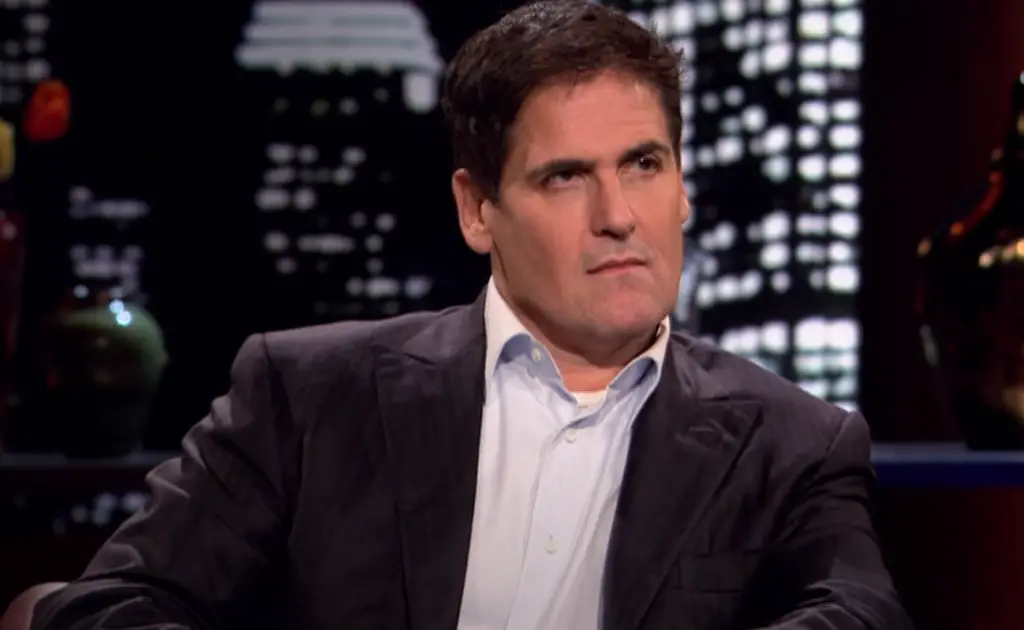
Nikki Pope offers her perspective, asserting that the key lies in bolstering their marketing efforts and increasing their exposure. She highlights that during their initial phase with just five hundred customers through word of mouth, they managed to amass a waiting list of over a thousand eager participants.
Robert Herjavec, delving into financial aspects, asks whether the business is draining significant cash as it undergoes rapid expansion, as Nikki had mentioned earlier.
Kevin O’Leary, in his usual pragmatic manner, inquires about the investment required for toy inventory with every million dollars in sales.
Nikki promptly responds that it amounts to sixty-four thousand dollars, covering an entire year’s worth of toys.
Kevin O’Leary, growing somewhat agitated, expresses his concerns. He points out that Nikki Pope’s company hasn’t yet reached the million-dollar mark, yet she is seeking investment as if it were already at that level. However, he sees potential in Toygaroo and believes in its concept, indicating his willingness to invest based on faith in Nikki’s ability to nurture its growth.
Kevin O’Leary further asks Nikki Pope about her business partners.
Nikki Pope reveals her husband as a partner, along with a web designer and two online marketers who have joined forces with her.
Kevin O’Leary’s curiosity persists, inquiring about Nikki Pope’s ownership stake in Toygaroo.
Nikki explains that she possesses a ten percent ownership share in the company.
Kevin O’Leary digs deeper, questioning the ownership distribution among the other partners.
Nikki clarifies that each partner holds ten percent, except for her husband, who commands fifty percent of Toygaroo.
Robert Herjavec, intrigued by this arrangement, asks why her husband holds a larger share.
Nikki attributes this decision to their collective agreement when embarking on this venture.
Barbara Corcoran, with her characteristic humor, interjects with a query about Nikki’s marital satisfaction.
Nikki Pope affirms her happiness in her marriage.
Kevin O’Leary, however, presses on, inquiring about why Nikki seemingly gave away a substantial portion of her company despite being the brains behind the idea.
Nikki Pope defends her husband’s significant stake by emphasizing his unwavering dedication and constant involvement in Toygaroo’s daily operations.
Kevin O’Leary and Barbara Corcoran wonder aloud why the equity distribution didn’t follow a more equal division, rather than Nikki relinquishing parts of her ownership to other partners.
Nikki Pope candidly admits that she doesn’t have a clear answer for that decision.
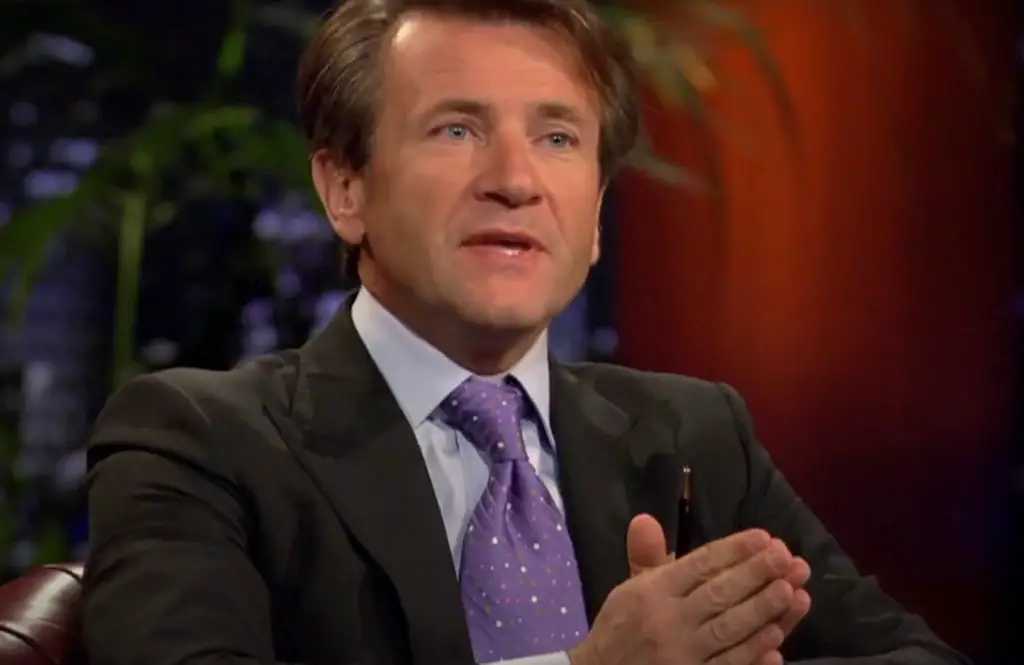
Daymond John, wary of past experiences with minority partners, expresses reluctance to invest in a company where the founder doesn’t hold a majority stake. Citing the inherent risks, he decides to opt out of the opportunity.
Kevin O’Leary acknowledges his wish for Nikki Pope to retain a larger share of Toygaroo but extends an offer nonetheless. He proposes a $ 100,000 investment in exchange for a thirty-five percent equity stake.
He underscores that relinquishing control is a rarity for him, given his penchant for control, but he believes in the concept and Nikki’s potential to lead Toygaroo to success.
Barbara Corcoran, ever vigilant, inquires whether Nikki has the authority to sell a thirty-five percent stake.
Nikki Pope asserts her right to make decisions regarding her company.
Nikki mentions that she had her sights set on Kevin O’Leary from the moment she walked into the studio, to which Kevin O’Leary reciprocated the sentiment.
Barbara Corcoran playfully remarks that Nikki Pope is the first woman to enter the studio and openly express attraction to Kevin O’Leary, prompting laughter from the Sharks.
Kevin O’Leary finally seeks Nikki’s acceptance of his offer.
Before Nikki can respond, Robert Herjavec interjects, indicating his intent to make an offer as well.
Robert Herjavec turns to Mark Cuban, proposing a collaboration in offering more capital to Nikki Pope and her business. Mark Cuban expresses his interest in the partnership.
Together, Robert Herjavec and Mark Cuban present a joint offer of $ 200,000 for a forty percent equity stake in Toygaroo.
Barbara Corcoran reveals that she initially planned to offer less but refrains from joining the bidding war and declares herself out.
Kevin O’Leary underscores his extensive experience in the toy industry and the fact that he lived in Fisher-Price for a year, earning him the moniker “Mr. Toy” [6].
Robert Herjavec and Mark Cuban emphasize the potential for the toy business to thrive online, with Robert relying on his expertise in internet-based businesses.
Mark Cuban offers insights into hypergrowth, particularly in the online domain.
Nikki Pope queries Kevin O’Leary about his relationship with Fisher Price and Mattel, given his past involvement with them.
Kevin O’Leary assures Nikki that his contributions to these companies have left a lasting impression.
Nikki Pope inquires whether Kevin O’Leary is willing to enhance his offer.
Kevin O’Leary counters by asking if Nikki would accept his offer if he were to increase it to $ 200,000.
Nikki Pope confirms her agreement with a nod.
Kevin O’Leary, recognizing Mark Cuban’s value, proposes a partnership and suggests splitting the offer with him.
Mark Cuban readily concurs.
Nikki Pope accepts the joint offer from Kevin O’Leary and Mark Cuban.
In the post-deal interview, Nikki Pope expresses her excitement about partnering with Kevin O’Leary and Mark Cuban, eagerly anticipating Toygaroo’s future prospects.
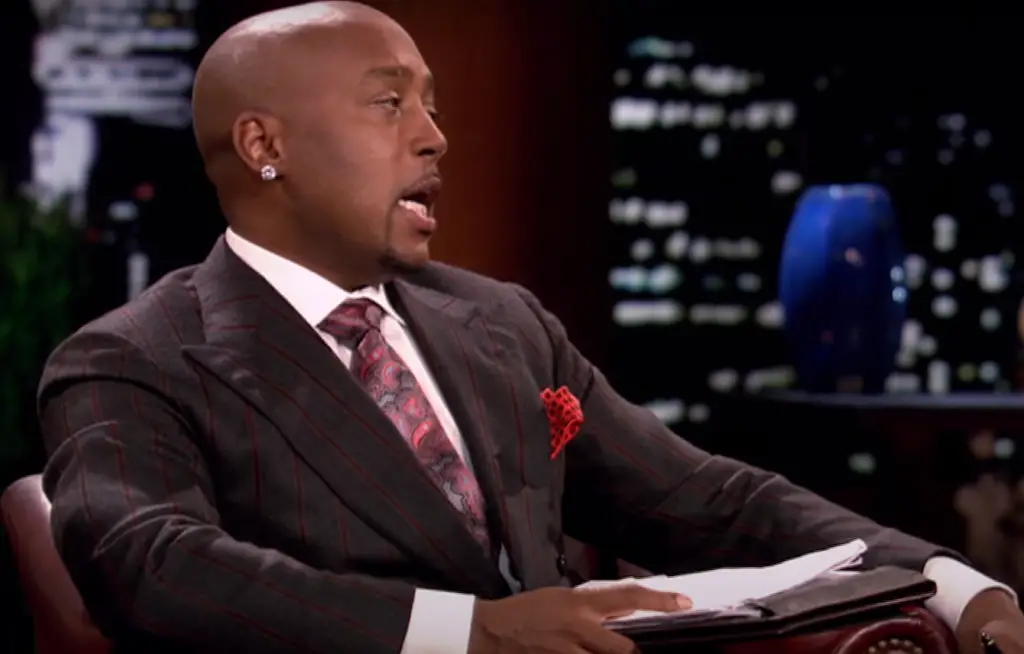
ToyGaroo After The Shark Tank
Regrettably, ToyGaroo has become a thing of the past. The company’s website has fallen into disuse, and its social media presence has remained frozen in time since 2014.
The inside scoop on ToyGaroo’s downfall comes courtesy of Phil Smy, a software designer and web developer who played a pivotal role in crafting ToyGaroo’s website and also held a stake in the company. In a revealing 2018 interview with the Failory blog, Smy peeled back the layers of ToyGaroo’s demise [7].
Ultimately, it all boiled down to one word: costs, with a particular focus on toy procurement and shipping. To begin with, ToyGaroo grappled with securing favorable deals with toy manufacturers for wholesale purchases. Smy revealed that Kevin O’Leary’s promised connections within the toy industry failed to materialize.
Additionally, a rift emerged over the company’s shipping strategy. Initially, ToyGaroo offered free shipping, but following their appearance on “Shark Tank”, the decision-makers at ToyGaroo contemplated introducing shipping fees.
However, Smy recounted that Cuban’s team vetoed this move, as it deviated from the initial agreement. When ToyGaroo’s leadership recognized the insurmountable challenges ahead, they reluctantly decided to close the shop. Interestingly, Cuban’s team extended an offer to acquire the company, which ToyGaroo ultimately declined.
For Smy, the decision to appear on “Shark Tank” proved to be a strategic miscalculation. While ToyGaroo had no trouble attracting customers, they found themselves unprepared to handle the influx of new business that typically accompanies a “Shark Tank” appearance, a phenomenon known as the “Shark Tank bump”. Sadly, this promising concept was ultimately undone by flawed execution.
The execution of ToyGaroo’s business model had some pitfalls. It seems that Mark Cuban and Kevin O’Leary, two of the sharks who invested in the company, saw potential in the idea, but the reality didn’t quite live up to the expectations.
One of the main issues with ToyGaroo was the customer experience. While the idea of having a rotating selection of toys sounds great in theory, the practicality of it raised several concerns. Parents reported issues with toy cleanliness and quality. It’s important to note that children can be rough with their toys, and the wear and tear were evident in the toys that ToyGaroo was shipping out.
Nikki Pope certainly excelled in promoting the ToyGaroo brand. Beyond their notable appearance on “Shark Tank”, she strategically leveraged various media platforms to spread the word.
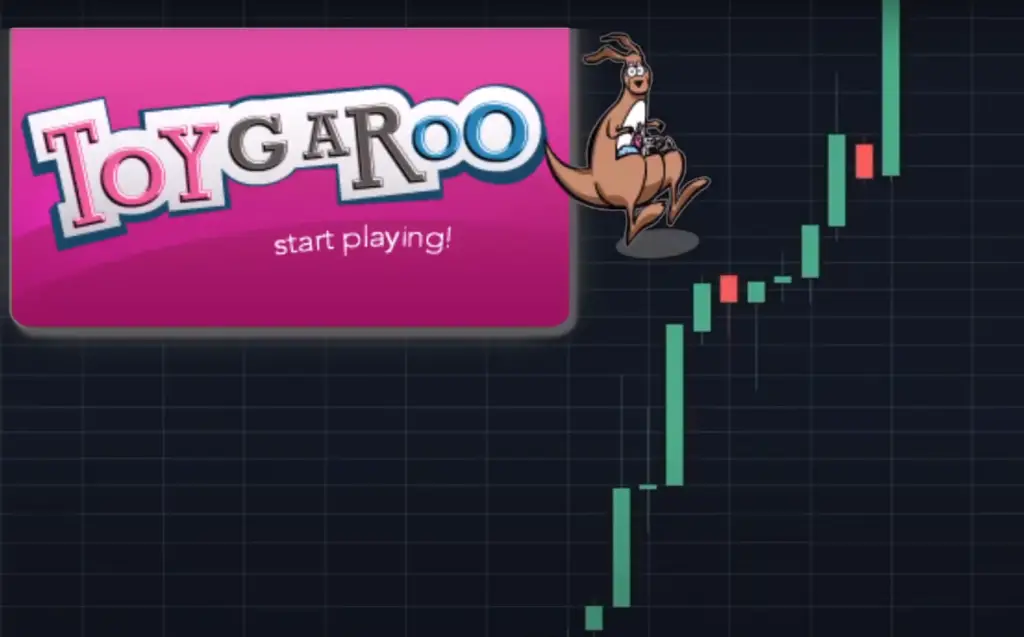
In fact, like many companies that vie for a spot on “Shark Tank”, ToyGaroo recognized that exposure was just as crucial as securing funding. Their aim extended beyond just financial backing; they sought to harness the power of the show’s wide-reaching audience to bolster their brand and create lasting recognition.
Financially, the business model also proved to be unsustainable. The costs of sanitizing, packaging, and shipping the toys were higher than anticipated. Additionally, the company faced challenges in maintaining a varied inventory of toys to keep their customers interested.
Despite the initial enthusiasm and investment from the Sharks, ToyGaroo was unable to sustain its business model. The company eventually filed for bankruptcy. This raises questions about the viability of the toy rental market as a whole.
ToyGaroo’s journey offers valuable lessons for entrepreneurs. The first is the importance of thoroughly testing a business model before securing significant investment. While ToyGaroo’s concept was innovative and exciting, it proved to be unworkable in practice.
Secondly, customer experience is key. Regardless of how groundbreaking a concept might be if the execution doesn’t meet customer expectations, the business is likely to struggle.
Lastly, financial sustainability is crucial. A business must be able to cover its costs to be viable in the long term. Unfortunately, ToyGaroo’s operating expenses were too high to maintain, leading to its eventual downfall6.
The Net Worth Of ToyGaroo
Nikki pointed out that the typical household allocates an annual budget of $ 1200 to $ 1500 towards toys. This innovative service, however, could slash that figure down to a mere $ 500. It not only curtailed expenses but also proved instrumental in reclaiming valuable storage space, which toys often lay claim to. For those who grew particularly fond of a specific plaything and wished to keep it, ToyGaroo even provided a purchase option.
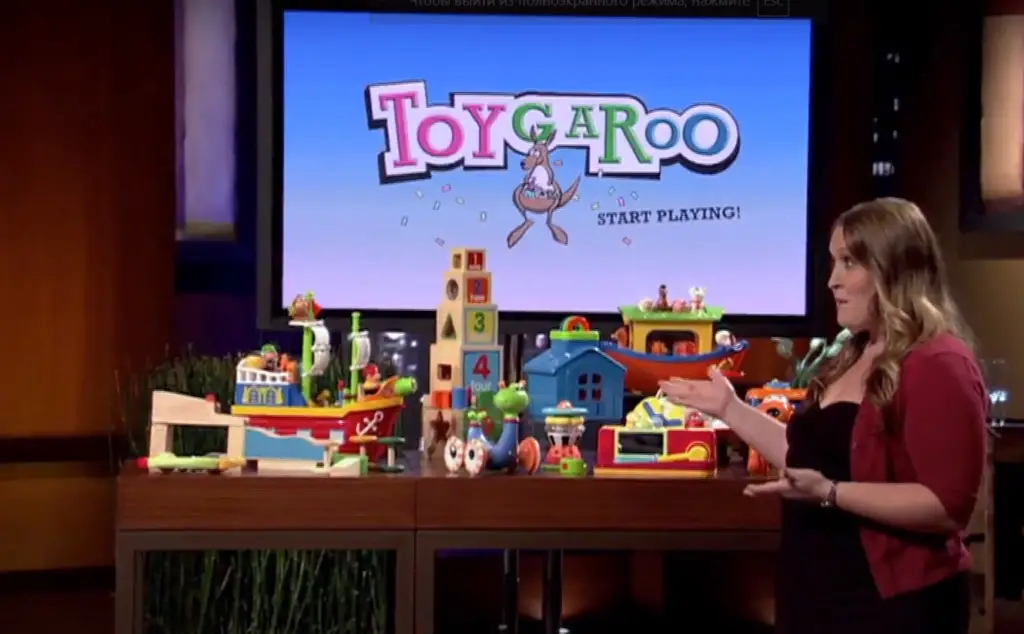
The company had grand plans to introduce free shipping for all its customers. In a remarkable grassroots marketing campaign, they successfully acquired their initial 500 patrons through word-of-mouth recommendations, each of whom shelled out around $ 40 for their toy subscriptions.
Nikki’s entrepreneurial acumen attracted investors to the company, amassing a substantial investment of $ 250,000 [10]. However, as time progressed, the harsh realities of exorbitant inventory and logistical costs became all too apparent, rendering the company’s sustainability unattainable with its existing financial metrics. Consequently, the founders found themselves with no alternative but to shutter the venture.
Alternatives To ToyGaroo:
- Tiny Earth Toys: Similar to ToyGaroo, Tiny Earth Toys offers a wide selection of toys for kids;
- Toymail: Although not exactly a toy rental service, Toymail offers an engaging way for kids to communicate with friends and family through cute, Wi-Fi-enabled toys;
- Babyquip: This company operates in more than 900 locations and offers clean toys for rent, making it a reliable alternative to ToyGaroo;
- ToySwap.com: Mentioned in a Youtube comment as an alternative to ToyGaroo, ToySwap.com seems to offer a platform for parents to swap toys;
While these alternatives may not exactly replicate ToyGaroo’s business model, they offer different solutions for parents looking to provide their children with a variety of toys without cluttering their homes.
FAQ:
- Who invested in ToyGaroo?
The triumph of Netflix undoubtedly played a pivotal role in the decision-making process for both Mark Cuban and the Canadian entrepreneur and mogul, Kevin O’Leary. Their extensive backgrounds and insights in the world of business and entertainment, combined with the innovative concept of Toygaroo, propelled them to join forces.
Together, they outbid the other three Sharks and secured a joint 35 percent stake in Toygaroo, sealing the deal with a $ 200,000 investment [11]. This strategic partnership holds great promise, drawing inspiration from Netflix’s unparalleled success and aiming to revolutionize the toy industry.
- Is ToyGaroo still in business?
ToyGaroo had closed its doors after an appearance on Shark Tank. It faced challenges with its business model, including inventory and logistical costs, and decided to cease operations.
- Who is the CEO of ToyGaroo?
Nikki Pope was the founder of ToyGaroo and appeared on Shark Tank to pitch her business. However, ToyGaroo is no longer operational.
- Why do Shark Tank deals never close?
Shark Tank deals often fail to close for various reasons, including due diligence revealing issues with the business, differences in valuation, or the inability to agree on deal terms. Additionally, some entrepreneurs may seek the Sharks’ expertise and exposure without necessarily intending to secure an investment.
- Do sharks get paid to be on Shark Tank?
Sharks do not get paid a salary for appearing on Shark Tank. They invest their own money into the businesses they choose to support and receive a share of the company in return.
- How real is Shark Tank?
Shark Tank is a real investment show where entrepreneurs pitch their businesses to potential investors. While the interactions are genuine, it’s important to note that the show is edited for television, and not all deals that are made on the show may ultimately come to fruition.
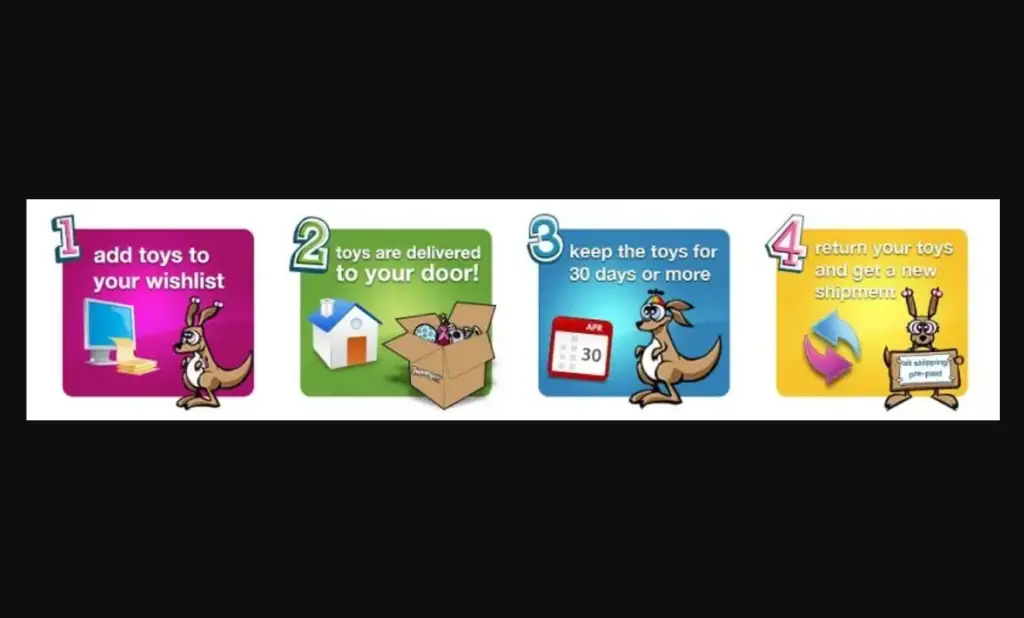
- Has anyone ever gotten an offer from all 5 “sharks”?
Yes, a few entrepreneurs have received offers from all five Sharks on the show. However, it’s relatively rare due to the competitive nature of the Sharks and the diverse range of businesses pitched on the show.
- What is the most successful business in Shark Tank history?
As of 2023, the most successful business to emerge from Shark Tank was probably “Scrub Daddy”, a company that produces innovative scrubbing products. It had generated millions in sales after securing a deal on the show. However, the landscape of successful businesses from the show can change over time.
- Has anyone ever lied on Shark Tank?
There have been instances where entrepreneurs misrepresented information about their businesses on Shark Tank. These instances have led to heated discussions and sometimes even withdrawn deals when the Sharks discover the deceit during due diligence.
- Who is the poorest Shark on Shark Tank?
Kevin O’Leary, often referred to as “Mr. Wonderful”, has claimed to be the wealthiest Shark on the show [12]. The other Sharks have varying degrees of wealth, but O’Leary frequently emphasizes his financial success.
- What is the #1 product in Shark Tank history?
The “most successful” product from Shark Tank can vary depending on the criteria used (e.g., revenue, profit, brand recognition). Products like Scrub Daddy, The Original Comfy, and Squatty Potty have achieved substantial success.
- What is the most successful Shark Tank reject?
Some businesses that were rejected on Shark Tank went on to achieve great success outside the show. For example, the “Ring” doorbell, which was rejected by the Sharks, was later acquired by Amazon for over a billion dollars.
- Do Shark Tank investors get their money back?
Whether or not Shark Tank investors get their money back depends on the performance of the businesses they invest in. Some investments yield substantial returns, while others may result in losses or the complete failure of the business.
- Was Shark Tank canceled?
As of 2023, Shark Tank had not been canceled and continued to air new seasons. However, show statuses can change, so it’s advisable to check the latest updates for its current status.
Useful Video: Worst Shark Tank Pitches Mark Cuban: Toygaroo Regret
References:
- https://www.looper.com/1185842/whatever-happened-to-the-toygaroo-after-shark-tank/
- https://bizzbucket.co/toygaroo-shark-tank-update-failure/
- https://www.sharktankblog.com/business/toygaroo/
- https://sharktanktales.com/toygaroo-shark-tank-update/
- https://seoaves.com/what-happened-to-toygaroo-after-shark-tank/
- https://medium.com/@nathangreeevo/toygaroo-the-netflix-of-toys-db7f209acd13
- https://www.failory.com/interview/toygaroo
- https://kirktaylor.com/toygaroo/
- https://2paragraphs.com/2016/04/toygaroo-toy-rental-company-bankrupt-after-shark-tank/
- https://gazettereview.com/2016/03/toygaroo-update-how-theyre-doing-now-after-shark-tank/
- https://seriosity.com/toygaroo-shark-tank/
- https://www.reddit.com/r/sharktank/comments/657q43/seriously_what_did_mark_and_kevin_see_in_toygaroo/

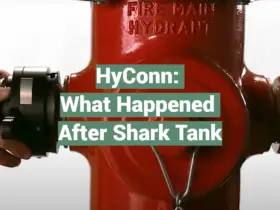
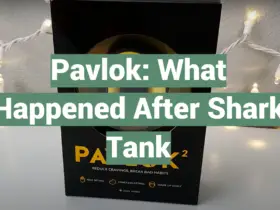
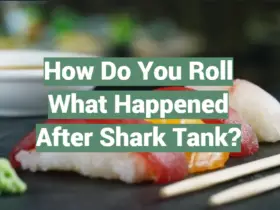
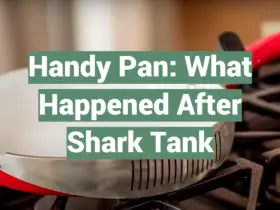
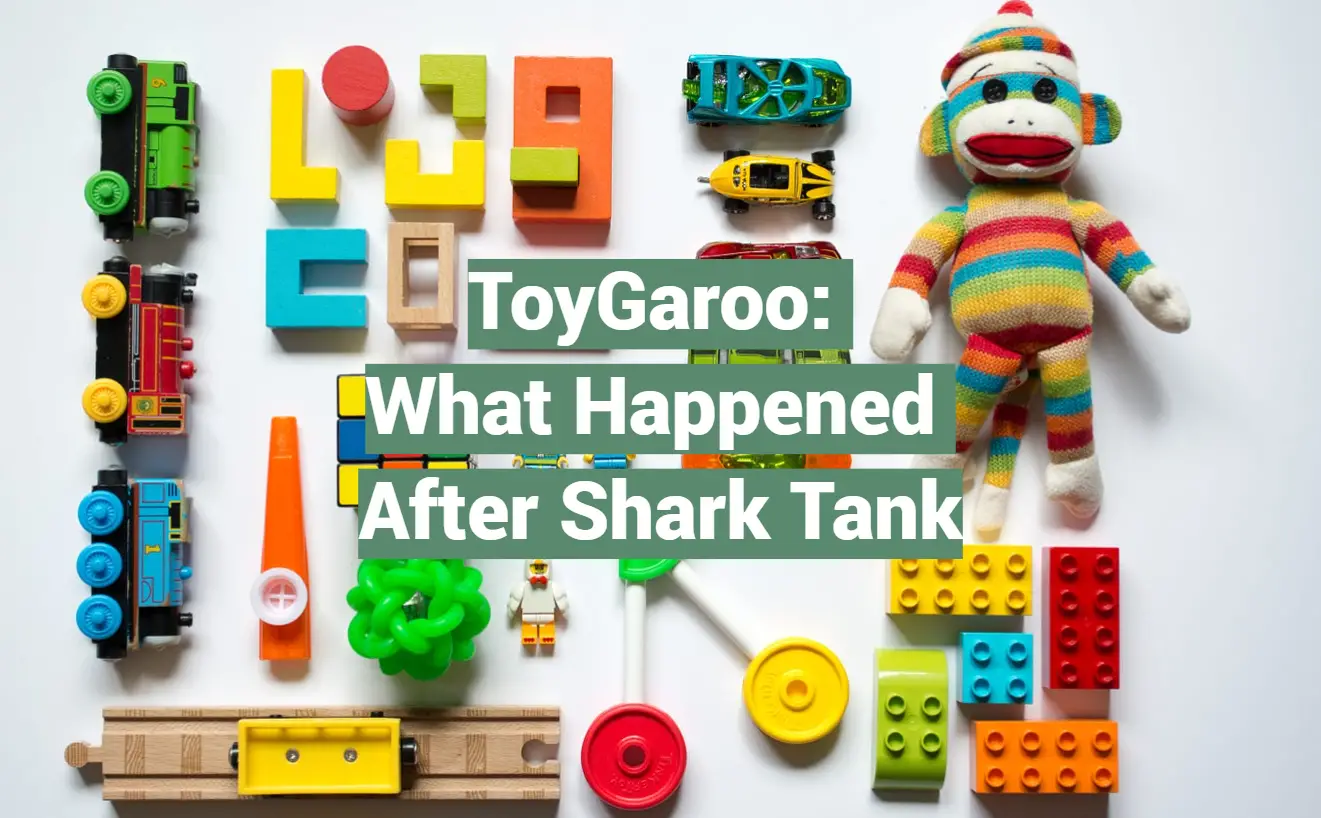
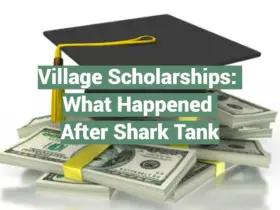

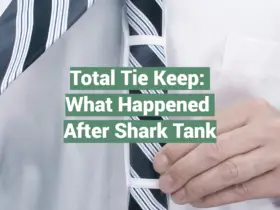
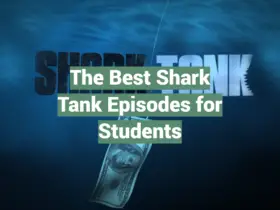
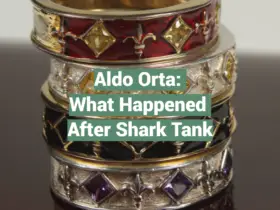
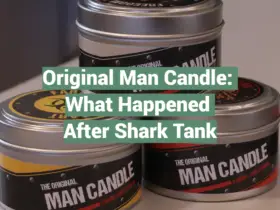
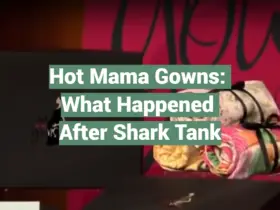
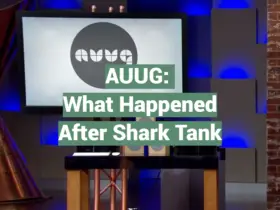
Leave a Reply